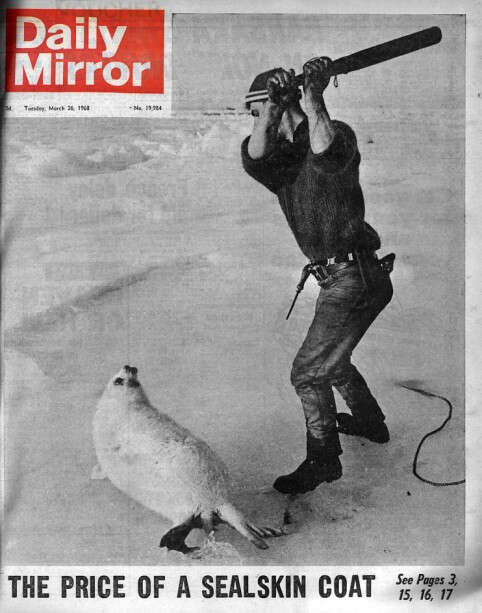
Daily Mirror editor Alison Phillips on the importance of campaigning journalism…
“The Mirror reflects life as it is, but it has always shown an awareness of the world as it might be,’ said the great Mirror editor Hugh Cudlipp. More than half a century on those words remain a beacon for us here at the Mirror.
Yes we reflect life as it is – coronavirus tragedies, Brexit chaos, lottery bonanzas, family fall out court cases, I’m A Celebrity scandals, FA Cup clashes and the evergreen (literally) Britain’s oldest Christmas tree story.
But what lies beneath all that is our role in showing the world “as it might be” and what we and our readers can do to build that world. That, in essence, is why we campaign.
Last week the Mirror ran a special edition focused on child poverty with reports from across the country highlighting the 4.2m children currently growing up in poverty, telling their stories and demanding action.
This then led into a second day in which we launched a fundraising appeal for children in such need: Save a Kid’s Christmas.
As with all our Mirror campaigns now this ran across print, digital and social media. It was discussed on our Facebook Live Mirror news review, appeared in our many newsletters and was a news alert straight to readers’ smartphones.
We were able to use all the weapons at hand in modern newsrooms to campaign on an issue our readers feel deeply about. And yet it was one of the oldest of Mirror campaigns too, steeped in our history.
One of the contributors to our special edition was veteran Mirror journalist John Pilger. Forty-five years ago John was writing about child poverty for the Mirror. And more than a decade before that a Mirror shock issue on poverty was felt to have had such an impact that it influenced the outcome of the 1964 General Election in which Harold Wilson came to power.
Good campaigns are the way newsbrands show solidarity with their readers – demonstrate they share the same values, feel the same concerns… breathe the same air. For the readers they’re a way those who have little power – who’re frequently ignored by the politicians, the rich and the well-connected – can change history.
And they can be proud about it.

When the Mirror ran the successful Change the Law for Life campaign you could barely get from your desk to the ladies’ loos without having to step over boxes containing thousands and thousands of coupons handwritten by readers demanding the law be changed to one of presumed consent on organ donation.
Our readers knew changing that law could save hundreds of lives every year. They, like so many people in Britain, wanted to do their bit to alleviate suffering and make this country a better place to live. They wanted to be part of a bigger movement that makes change – and we give them the channel to do that.
In the past few years alone we have also had success in campaigning for Helen’s Law which ends a killer’s automatic right to parole if they have not revealed the resting place of their victim. There was also victory in our campaign to ban the importation of products from trophy hunting and our work on Lucy’s Law which banned backstreet puppy farms.

And of course it’s not just the Mirror.
The Sun, Daily Mail and Daily Express all frequently run successful campaigns galvanising their readers and shaping legislation. Regional papers have also organised some of the most successful campaigns in recent history, benefitting from being so close to local issues which directly impact readers’ lives and being able to effect real change.
Sometimes it makes you wonder what the actual politicians are up to all day. And they don’t even have the gardening column and racing pages to think about.
Of course you could argue that the mere fact the Mirror is still campaigning on child poverty more than half a century after it started shows we have failed. Just as we failed when we campaigned day in, day out for the TV licence fee not to be imposed on those over 75.
Many journalists will tell you the golden rule of newspaper campaigns is they should never be launched unless you’re certain you can win.
But that’s rubbish. Firstly, who knows what you can win until you’ve tried? Who knows what ripples you can start in the national conversation which once day become a tidal wave of support? And chiefly, although winning is great, it’s not everything. “Everything” is showing readers we’re next to them, fighting their corner, reflecting their concerns.
A charge traditionally thrown at newspapers is we only do this or that story “to sell papers”. It’s a curious accusation – I’ve yet to hear Persil being criticised for manufacturing washing powder “just to sell washing powder”. Still it’s a cross we have to bear.
One thing campaigns rarely do is sell papers. To the casual newsstand shopper they are unlikely to drive purchase. But to the loyal buyers they are the glue which holds journalists and readers together.
For us at the Mirror, many of our campaigns are like an unbroken ribbon which runs through our journalism back to our beginnings in 1903.
Poverty is one such example, but there are others too, like compassion for animals. In 1969 our ‘the price of a sealskin coat’ front page featuring the iconic image by Kent Gavin of a seal being clubbed helped change the national attitude towards the fur trade. This year we are still campaigning for an end to the sale of all fur products in the UK.

Daily Mirror Front Page March 1968. Picture: Mirror/Kent Gavin
And like ensuring those with the least don’t suffer most when tragedies happen. In 1912 after the Titanic went down it was the Mirror which demanded no ship should set sail again without sufficient lifeboats for all on board, not just the richest passengers. More than a century later, after the Grenfell Tower fire, we launched our Never Again campaign.
And long before environmental issues became popular the Mirror was campaigning to save animals from extinction and helped launch the World Wildlife Fund with our ‘Doomed’ front page of 9 October 1961. At the end of last year we continued this campaign as part of our special green masthead environmental issue.
But not every campaign has to be about saving the world. Often the most effective are those such as our recent campaign encouraging Brits to stand on our doorsteps on Remembrance Sunday when official events were cancelled because of lockdown. These are the things which reflect our readers’ concerns and reassure them in this difficult world.
Established newsbrands still hold huge influence in this country. Don’t let any skateboarding hipster from a Shoreditch loft tell you otherwise. We are a bridge between the people and the powerful. We break the news and launch the campaigns that become the fodder of newsfeeds and social media debates.
As that great photojournalist Peter Parker, aka Spider-Man, said: ‘With great power there must also come great responsibility.’
Our responsibility is to speak and act on behalf of our readers and together to help build the world “as it might be”.
Email pged@pressgazette.co.uk to point out mistakes, provide story tips or send in a letter for publication on our "Letters Page" blog
